Chris Malloy’s Newest Film Focuses on Food’s Relationship with the Environment
The former pro surfer-turned-ag-documentarian tackles four areas of regenerative agriculture.
Chris Malloy’s Newest Film Focuses on Food’s Relationship with the Environment
The former pro surfer-turned-ag-documentarian tackles four areas of regenerative agriculture.
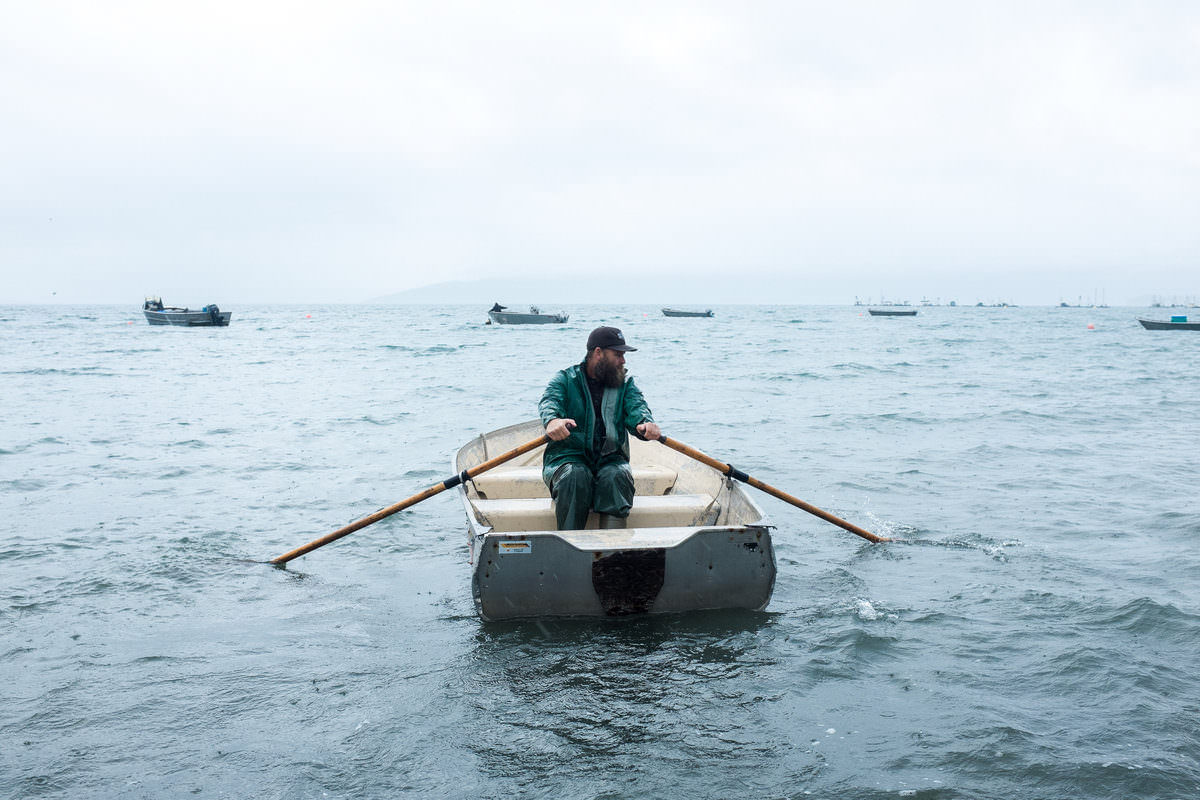
Malloy’s latest documentary is Unbroken Ground, which he made for Patagonia Provisions. The 25-minute film, released today, looks at four innovative solutions to agricultural problems, through the lens of the thought leaders behind them: Wes Jackson of The Land Institute, who has been working on a perennial wheat variety that could greatly improve soil health; Stephen Jones, the director of Washington State University’s The Bread Lab, a combination think-tank and baking laboratory that produces grain and legume varieties for small U.S. farmers; Dan and Jill O’Brien, the owners of Cheyenne River Ranch, who switched to raising cattle to bison, which they believe is a more sustainable protein source; and Ian Kirouac, Keith Carpenter, and Riley Starks, the founders of Lummi Island Wild, who use reef netting – a more environmentally friendly technique – to catch salmon.
Malloy, like his two younger brothers, Keith and Dan – who have also had storied surfing careers and are filmmakers – is a brand ambassador for the outdoor clothing and gear company Patagonia. He raises beef cattle on a ranch in Lompoc, California, where he lives with his wife and three kids.
We recently caught up with Malloy via phone to ask him about filmmaking, ranching, and more.
Modern Farmer: When did you begin making films?
Chris Malloy: Around ’97 I was making a living as a surfer when I had a kind of career-ending injury. I was confronted with either driving a tractor for my dad or finding another hustle. I’d been exposed to filmmaking through being in front of the lens for so long. I had a few bucks saved up so I went out for 18 months and made a surfing doc and fell in love with it. At the beginning, it was surf-oriented then it slowly and surely evolved into conservation and ag issues
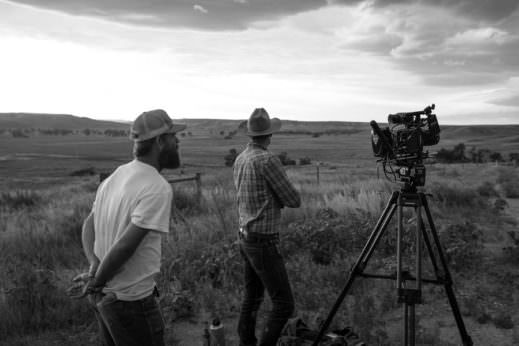
MF: How did you get into ranching?
CM: I want to be super clear that while I run some cows and my wife grows a lot of food, I don’t make a living as a rancher, a farmer, or a fisherman. I do all those things out of passion and as a pursuit to feed my kids food that I’ve been involved in producing. I grew up having pigs, chickens, goats, and my dad grew some food, but he drove a dozer for a living. I think there’s a big delineation between folks who have a passion for growing food, and that special character who is crazy enough to make that their whole life. My wife and I dream of the day when we can do that full time. In the interim we get to feed our friends and family food that we’re really proud of.
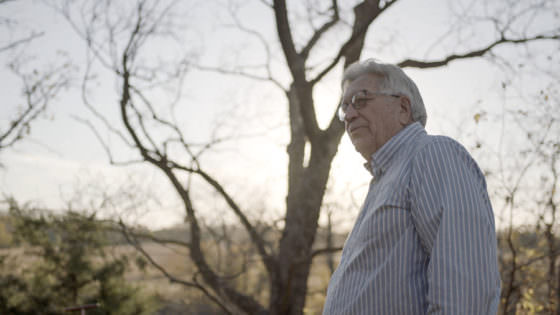
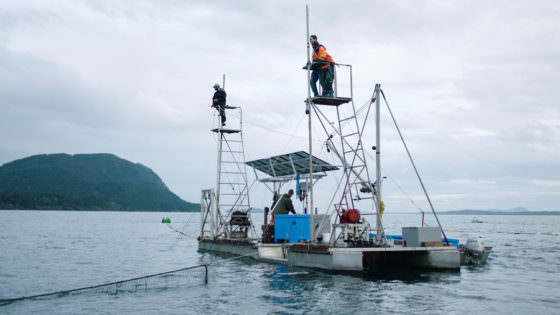
MF: Tell me a little about the film’s premise.
CM: Farmers, ranchers, and fishermen are really demonized by our society. They’re seen as backwards and extractive. This film isn’t anti-farming, ranching, or fishing; it’s pro-farming, ranching, and fishing. It’s about alternatives that are financially viable so that the common man can feed his family – maybe not right now, but down the road. This film is not a victory lap, it’s a battle cry; it’s a report of where some visionary, half-crazy folks have gotten with offering an alternative vision for agriculture.
Wes Jackson says if you’re trying to tackle a problem that you can fix in your lifetime, you’re not thinking big enough.
MF: Did you find a common set of ideas or ideals, which all the characters in the film share?
CM: All these people share a few things in common, but one is that they’re all a little crazy. They have a very educated hunch that they can supply a viable alternative to a specific area of agriculture, and they’ve dedicated their lives to it. This is about shifting agricultural systems worldwide. Wes Jackson says if you’re trying to tackle a problem that you can fix in your lifetime, you’re not thinking big enough. All of them have calloused hands and sunburned faces, but are also thinkers and philosophers, on some level. These people are doing it and have been doing it for decades. That, for me, was what made them collectively so inspiring to be around.
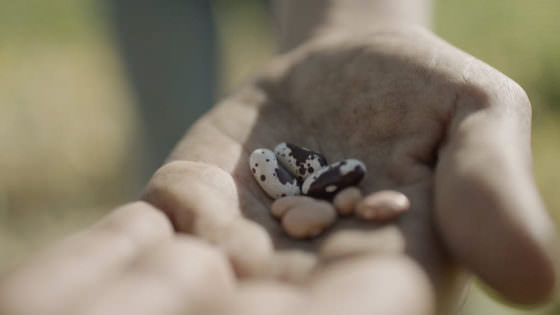
MF: What did you learn from making this film?
CM: When I was interviewing Wes Jackson, a geneticist-philosopher with total recall, I was on the edge of my seat doing my damnedest to keep up. He was so fascinating. He wove philosophy and history and science together. I’d ask him a question about a specific seed and he’d say, “well, obviously, you’ve got to start with Dante’s Inferno” [laughs]. He’s so incredibly poetic and full of information, and [he] recognized agricultural problems that were going on before most people did. If he does accomplish creating a perennial wheat some say it will be the biggest shift in ag in 10,000 years. It was an honor to sit with that man.
Watch Unbroken Ground, below.
Follow us
This work is licensed under a Creative Commons Attribution-NoDerivatives 4.0 International License.
Want to republish a Modern Farmer story?
We are happy for Modern Farmer stories to be shared, and encourage you to republish our articles for your audience. When doing so, we ask that you follow these guidelines:
Please credit us and our writers
For the author byline, please use “Author Name, Modern Farmer.” At the top of our stories, if on the web, please include this text and link: “This story was originally published by Modern Farmer.”
Please make sure to include a link back to either our home page or the article URL.
At the bottom of the story, please include the following text:
“Modern Farmer is a nonprofit initiative dedicated to raising awareness and catalyzing action at the intersection of food, agriculture, and society. Read more at <link>Modern Farmer</link>.”
Use our widget
We’d like to be able to track our stories, so we ask that if you republish our content, you do so using our widget (located on the left hand side of the article). The HTML code has a built-in tracker that tells us the data and domain where the story was published, as well as view counts.
Check the image requirements
It’s your responsibility to confirm you're licensed to republish images in our articles. Some images, such as those from commercial providers, don't allow their images to be republished without permission or payment. Copyright terms are generally listed in the image caption and attribution. You are welcome to omit our images or substitute with your own. Charts and interactive graphics follow the same rules.
Don’t change too much. Or, ask us first.
Articles must be republished in their entirety. It’s okay to change references to time (“today” to “yesterday”) or location (“Iowa City, IA” to “here”). But please keep everything else the same.
If you feel strongly that a more material edit needs to be made, get in touch with us at [email protected]. We’re happy to discuss it with the original author, but we must have prior approval for changes before publication.
Special cases
Extracts. You may run the first few lines or paragraphs of the article and then say: “Read the full article at Modern Farmer” with a link back to the original article.
Quotes. You may quote authors provided you include a link back to the article URL.
Translations. These require writer approval. To inquire about translation of a Modern Farmer article, contact us at [email protected]
Signed consent / copyright release forms. These are not required, provided you are following these guidelines.
Print. Articles can be republished in print under these same rules, with the exception that you do not need to include the links.
Tag us
When sharing the story on social media, please tag us using the following: - Twitter (@ModFarm) - Facebook (@ModernFarmerMedia) - Instagram (@modfarm)
Use our content respectfully
Modern Farmer is a nonprofit and as such we share our content for free and in good faith in order to reach new audiences. Respectfully,
No selling ads against our stories. It’s okay to put our stories on pages with ads.
Don’t republish our material wholesale, or automatically; you need to select stories to be republished individually.
You have no rights to sell, license, syndicate, or otherwise represent yourself as the authorized owner of our material to any third parties. This means that you cannot actively publish or submit our work for syndication to third party platforms or apps like Apple News or Google News. We understand that publishers cannot fully control when certain third parties automatically summarize or crawl content from publishers’ own sites.
Keep in touch
We want to hear from you if you love Modern Farmer content, have a collaboration idea, or anything else to share. As a nonprofit outlet, we work in service of our community and are always open to comments, feedback, and ideas. Contact us at [email protected].by Andrew Amelinckx, Modern Farmer
August 1, 2016
Modern Farmer Weekly
Solutions Hub
Innovations, ideas and inspiration. Actionable solutions for a resilient food system.
ExploreExplore other topics
Share With Us
We want to hear from Modern Farmer readers who have thoughtful commentary, actionable solutions, or helpful ideas to share.
SubmitNecessary cookies are absolutely essential for the website to function properly. This category only includes cookies that ensures basic functionalities and security features of the website. These cookies do not store any personal information.
Any cookies that may not be particularly necessary for the website to function and are used specifically to collect user personal data via analytics, ads, other embedded contents are termed as non-necessary cookies.